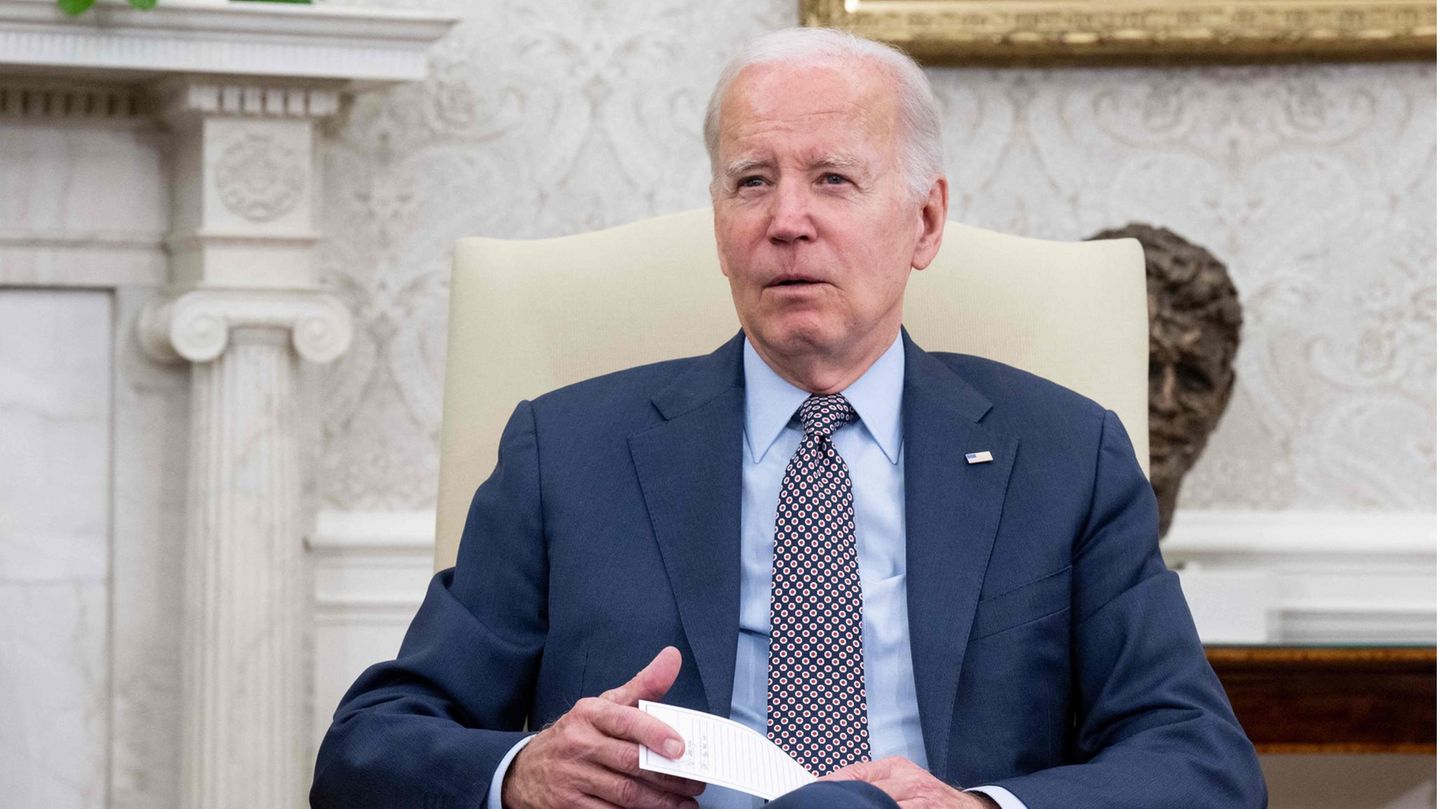In the US, the debt ceiling has to be raised again. But this time it’s particularly tough. A default would have dramatic consequences.
Every year the USA reaches the limit with its debt. What follows are always lengthy negotiations to increase the debt ceiling. In this respect, the current discussion about a possible bankruptcy of the USA is nothing new.
Democrats and Republicans often only come to an agreement at the last minute. But this time the urgency is new. If no agreement is reached, the United States is threatened with insolvency on June 1, as Treasury Secretary Janet Yellen calculated.
Severe turbulence could result from a default
If there really were a default, it would probably throw the global economy into severe turbulence. Both sides, Republicans and Democrats, had emphasized several times that they wanted to avoid the catastrophic scenario – also because, according to polls, the scenario would not benefit any party.
Biden’s government is running out of money because in the United States, Parliament decides how much the state can borrow from creditors. The system thus works fundamentally differently than in Germany, where the debt brake laid down in the Basic Law sets guidelines. The upper limit in the USA is currently 31.4 trillion dollars. However, because this ceiling has already been reached, the United States can only keep its head above water with a few financial policy tricks – known in technical jargon as “extraordinary measures”.
The situation is particularly complicated because the Republicans only have a very narrow majority in the House of Representatives. The parliamentary group also includes particularly radical MPs who show no interest in a realistic compromise. In return for a compromise, most MPs want to urge Biden to make cuts in the social sector, for example. Republican Speaker of the US House of Representatives Kevin McCarthy wants to rally some of the radicals behind a possible deal with the Democrats in order to have a majority in a vote. Otherwise he would have to rely on the support of the Democrats, which weakens his position as chief negotiator.
In the past few days, Biden and McCarthy have met several times to negotiate. Both of them then emphasized how “productive” (McCarthy) and “good” (Biden) they had gone – but so far they have not announced a concrete result.
The markets are still calm
Historically, however, a solution is likely. The debt limit has been raised 78 times since 1960. And that’s exactly what the markets are still speculating on. In any case, the potential threat is hardly reflected in the prices.
The risk potential is considerable, albeit difficult to calculate. However, it is very likely that confidence in the United States as a solvent debtor would be shaken. The US bank JP Morgan sees the danger that important government spending such as pension payments would initially be canceled at least temporarily. Significant price losses are likely to occur on the stock markets. In this case, the “Council of Economic Advisers” (CEA), an advisory body to the US President, even assumes a slump of 45 percent in the third quarter.
More drastic for the world economy, however, would be that the already existing risk of an economic downturn in the United States would increase. In the medium term, even the dollar’s status as a global reserve currency could be called into question if the US defaults on its external debt.
What the effects will be for Germany and Europe is “a question with a lot of ifs and buts,” says Ralf Runde, an expert at Landesbank Hessen-Thüringen. Should the US actually default, the dollar could lose a lot of value. In return, the euro should appreciate considerably. “This would be very inconvenient for the German export industry in the already difficult economic situation, since the stronger euro would make their goods more expensive internationally,” warnscirculation.
Joe Biden still has these options
It is also conceivable that there will be an additional global rise in interest rates via the capital markets – which would also be a burden for the German and European economy.
Most experts expect an agreement. However, this could only happen at the last second in order to generate maximum pressure on the other side. Michael Krautzberger, head of fundamental fixed income at asset manager Blackrock, said on Wednesday: “My US colleagues are very concerned. The incentives are such that they will not find a quick compromise. We expect a last-minute deal.”
This situation alone and the resulting uncertainty could, for example, lead to a sell-off of US risk investments. But if these companies lack cash, it could accelerate the US recession.
But even if Republicans and Democrats don’t agree, President Joe Biden still has options. On the one hand, there has been a constitutional debate in the USA for some time as to whether the debt ceiling could not be increased as a result of the 14th Amendment. This states that the “validity” of government debt “should not be questioned”. The US government could invoke it – and order the Fed to pay. Joe Biden already said he’s thinking about it.
The “trillion dollar coin” still exists
Another option, and possibly the most pragmatic, is a short-term increase in the debt limit – say by the end of the fiscal year on September 30th. That is also one of the ideas, confirmed Biden. For example, unused Corona aid could be reallocated to this purpose. However, this would lead to further political upsets with the Republicans, which is why Biden’s spokeswoman Karine Jean-Pierre rejected concrete plans for the time being.
The plan for a “trillion dollar coin” that came up during the 2011 debt crisis sounds much more creative. For this purpose, the US government could create a physical coin that is deposited with the central bank “Fed”. In return, she would get fresh money in the appropriate amount. Although the idea is supported by economists like Paul Krugman, it hardly has a chance in terms of realpolitik. Both Biden and Treasury Secretary Yellen currently believe they are the wrong way to go.
The article first appeared on .
Source: Stern
I have been working in the news industry for over 6 years, first as a reporter and now as an editor. I have covered politics extensively, and my work has appeared in major newspapers and online news outlets around the world. In addition to my writing, I also contribute regularly to 24 Hours World.




